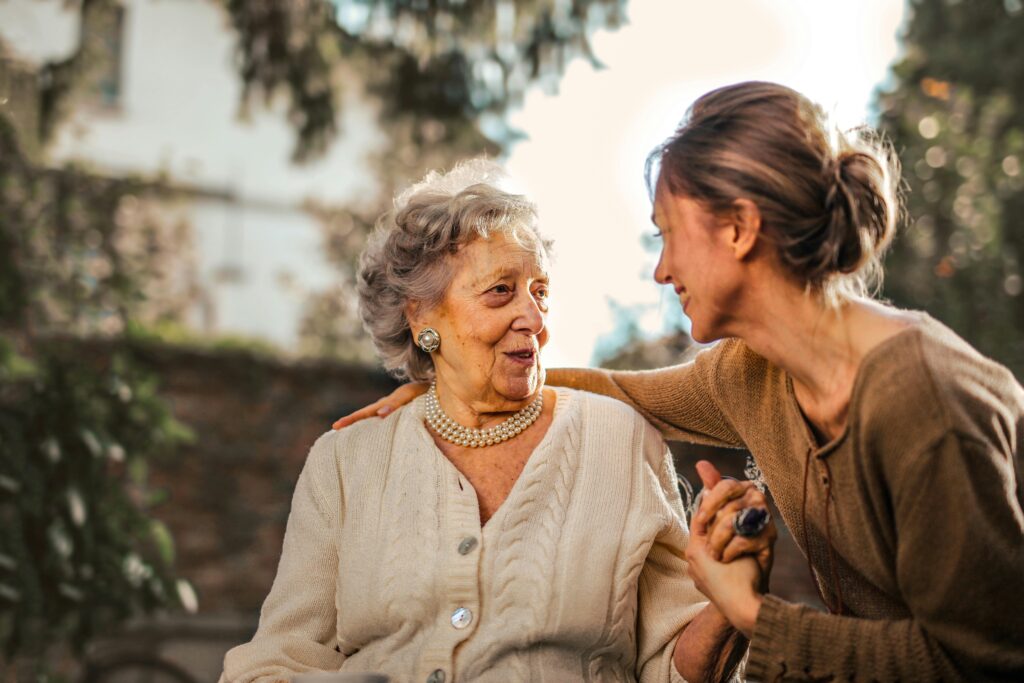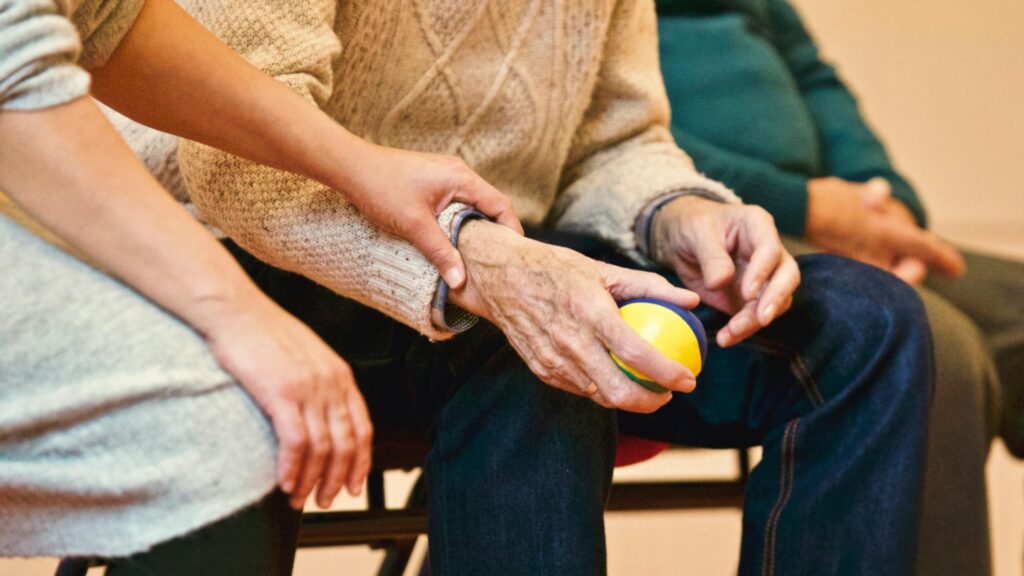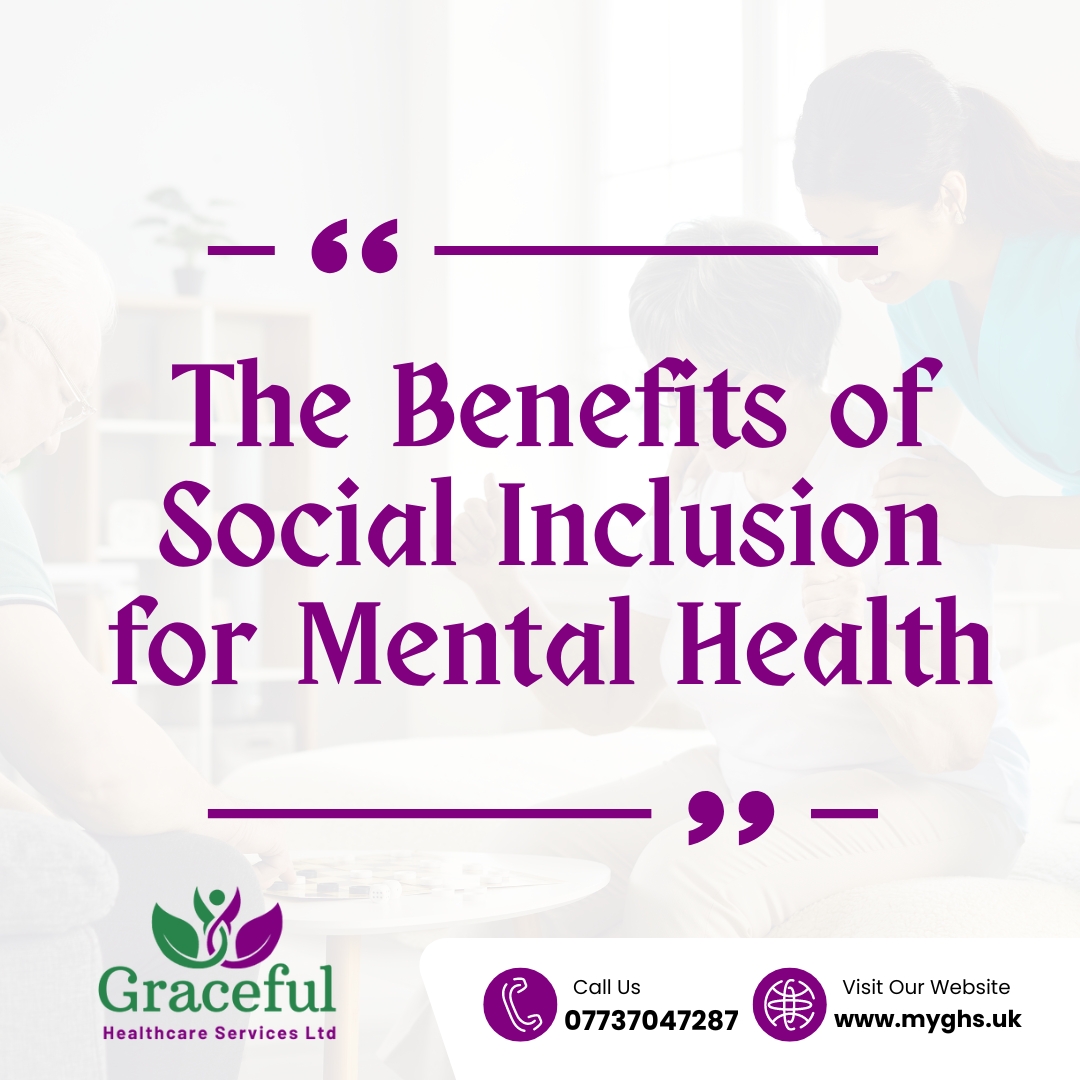The Benefits of Companionship Care for Seniors

In an era where our population is ageing rapidly, the importance of comprehensive care for seniors has never been more pronounced. Among the various types of senior care available, companionship care stands out as a vital service that addresses not just physical needs, but also the emotional and social well-being of older adults. This article delves into the myriad benefits of companionship care for seniors, exploring how it contributes to improved quality of life, enhanced mental health, and increased social inclusion.
Understanding Companionship Care
Companionship care is a non-medical form of home care that focuses on providing seniors with social interaction, emotional support, and assistance with daily activities. Unlike more intensive forms of care, companionship services are designed to combat loneliness and isolation while helping seniors maintain their independence and dignity.
Graceful Healthcare Services recognises the critical role that companionship plays in senior care, offering tailored services that cater to the unique needs of each individual. By prioritising the social and emotional aspects of care alongside physical assistance, companionship care providers like Graceful Healthcare Services ensure a holistic approach to senior well-being.
The Growing Need for Companionship Care
The UK, like many developed nations, is experiencing a significant demographic shift towards an older population. According to the Office for National Statistics, by 2050, one in four people in the UK will be aged 65 years and over. This ageing population brings with it an increased demand for various forms of senior care, including companionship services.
Moreover, loneliness and social isolation among seniors have been recognised as serious public health issues. Age UK reports that 1.4 million older people in England are often lonely. This statistic underscores the urgent need for interventions that promote social connections and emotional support for older adults.
Key Benefits of Companionship Care

- Improved Mental Health
Companionship care plays a crucial role in maintaining and improving the mental health of seniors. Regular social interaction can significantly reduce the risk of depression and anxiety, which are common among older adults. A study published in the Journal of Gerontology found that increased social activity was associated with a 70% reduction in cognitive decline compared to those with low social activity.
Graceful Healthcare Services understands the importance of mental stimulation and offers companionship care that includes engaging activities, conversations, and cognitive exercises to keep seniors mentally sharp and emotionally fulfilled.
- Enhanced Physical Health
While companionship care is not primarily focused on medical needs, its impact on physical health is substantial. Companions can encourage seniors to maintain physical activity, adhere to medication schedules, and attend medical appointments. The British Heart Foundation emphasises that regular physical activity can reduce the risk of developing heart and circulatory diseases by up to 35%.
Additionally, companionship care can lead to improved nutrition as caregivers can assist with meal planning, grocery shopping, and cooking, ensuring that seniors maintain a balanced diet.
- Increased Social Inclusion
Social inclusion is a fundamental human need that doesn’t diminish with age. Companionship care facilitates continued engagement with the community, helping seniors maintain existing relationships and form new ones. This social connection is vital for overall well-being and can lead to a more fulfilling life in later years.
Research from the Campaign to End Loneliness shows that lacking social connections is as damaging to health as smoking 15 cigarettes a day. By providing regular social interaction, companionship care directly addresses this critical health issue.
- Maintenance of Independence
One of the primary goals of companionship care is to help seniors maintain their independence for as long as possible. By assisting with daily tasks rather than taking over completely, companions empower seniors to continue living in their own homes and communities. This sense of autonomy is crucial for self-esteem and overall life satisfaction.
- Reduced Risk of Falls and Accidents
The presence of a companion can significantly reduce the risk of falls and accidents in the home. Age UK reports that falls are the most common cause of injury-related deaths in people over the age of 75 in the UK. Companions can help create a safer living environment, assist with mobility, and provide an extra set of eyes to prevent potential hazards.
- Cognitive Stimulation
Engaging in regular conversations, playing games, or participating in hobbies with a companion can provide vital cognitive stimulation for seniors. This mental engagement can help slow cognitive decline and may even reduce the risk of developing dementia.
The Alzheimer’s Society reports that keeping mentally active is one of the potential ways to reduce the risk of dementia. Graceful Healthcare Services incorporates cognitive stimulation activities into their companionship care programmes, tailoring these to each individual’s interests and abilities.
- Respite for Family Caregivers
Companionship care also provides invaluable respite for family members who may be the primary caregivers. This break can help prevent caregiver burnout and allow family members to maintain their own health and well-being while ensuring their loved one receives quality care.
Carers UK estimates that over 6.5 million people in the UK are unpaid carers, with the economic value of their contribution reaching £132 billion per year. Providing respite through professional companionship care is crucial in supporting these invaluable family caregivers.
- Improved Quality of Life
Ultimately, the combination of all these benefits leads to an overall improvement in quality of life for seniors. Companionship care helps older adults maintain a sense of purpose, enjoy their favourite activities, and continue to find joy in their daily lives.
Research shows that social relationships were a stronger predictor of subjective well-being than economic factors in older adults.
Implementing Effective Companionship Care

To maximise the benefits of companionship care, it’s essential to implement it effectively. Here are some key considerations:
- Personalised Care Plans
Every senior has unique needs, interests, and preferences. Graceful Healthcare Services emphasises the importance of creating personalised care plans that take into account the individual’s personality, hobbies, and specific requirements.
- Consistency in Care Providers
Building a trusting relationship between the senior and their companion is crucial. Consistent care providers allow for the development of genuine connections and a deeper understanding of the senior’s needs.
- Integration with Other Care Services
Companionship care should be integrated with other forms of care when necessary. This holistic approach ensures that all aspects of a senior’s well-being are addressed.
- Regular Assessment and Adaptation
As a senior’s needs change over time, companionship care should be regularly assessed and adapted to ensure it continues to meet their evolving requirements.
- Family Involvement
While companionship care provides professional support, family involvement remains crucial. Regular communication between care providers, families, and seniors helps ensure the best possible care outcomes.
The Future of Companionship Care
As technology continues to advance, the future of companionship care is likely to incorporate innovative solutions. Virtual companionship, AI-assisted care, and smart home technologies are all potential developments that could enhance the delivery of companionship services.
However, the human element of companionship care will always remain irreplaceable. The empathy, understanding, and genuine human connection provided by companionship caregivers form the cornerstone of this vital service.
Conclusion
Companionship care represents a crucial component of senior care, offering a wide range of benefits that contribute to improved physical health, enhanced mental well-being, and increased social inclusion for older adults. As our population continues to age, the importance of companionship care in promoting healthy and fulfilling lives for seniors cannot be overstated.
By recognising the value of companionship care and implementing it effectively, we can ensure that our ageing population receives the support they need to maintain their independence, dignity, and quality of life. Services like Graceful Healthcare Services play a vital role in delivering high-quality companionship care, tailored to the individual needs of each senior.
As we move forward, it’s essential that we continue to prioritise and invest in companionship care as a key strategy in addressing the challenges of an ageing population. By doing so, we can create a society where seniors are not just living longer, but living better, more connected, and more fulfilling lives.
Disclaimer: This article is intended for informational purposes only and does not constitute medical advice or professional care recommendations. The information provided is based on current research and best practices at the time of writing. Readers should consult with healthcare professionals, qualified care providers, or local authorities before making decisions about companionship care or any other form of senior care. While efforts have been made to ensure accuracy, Graceful Healthcare Services Ltd and the author do not guarantee the completeness or currency of the information presented. Individual circumstances may vary, and personalised advice should always be sought.
References:
[1] Office for National Statistics. (2019). “Living longer: how our population is changing and why it matters.” Retrieved from https://www.ons.gov.uk/peoplepopulationandcommunity/birthsdeathsandmarriages/ageing/articles/livinglongerandoldagedependencywhatdoesthefuturehold/2019-06-24
[2] Age UK. (2023). “Loneliness in later life.” Retrieved from https://www.ageuk.org.uk/our-impact/policy-research/loneliness-research-and-resources/
[3] James, B. D., et al. (2011). “Late-Life Social Activity and Cognitive Decline in Old Age.” Journal of the International Neuropsychological Society, 17(6), 998-1005. https://www.ncbi.nlm.nih.gov/pmc/articles/PMC3206295/
[4] British Heart Foundation. (2023). “Physical Activity and Your Heart Health.” Retrieved from https://www.bhf.org.uk/informationsupport/risk-factors/physical-inactivity
[5] Campaign to End Loneliness. (2023). “The Facts on Loneliness.” Retrieved from https://www.campaigntoendloneliness.org/weve-launched-new-film-loneliness-project/
[7] Age UK. (2023). “Falls.” Retrieved from https://www.ageuk.org.uk/latest-press/articles/2019/may/falls-in-later-life-a-huge-concern-for-older-people/
[8] Alzheimer’s Society. (2023). “Risk factors and prevention.” Retrieved from https://www.alzheimers.org.uk/about-dementia/risk-factors-and-prevention
[9] Carers UK. (2023). “Facts and Figures.” Retrieved from https://www.carersuk.org/news-and-campaigns/press-releases/facts-and-figures
[10] The Effect of Social Relationships on the Well-Being and Happiness of Older Adults Living Alone or with Relatives. https://www.ncbi.nlm.nih.gov/pmc/articles/PMC9858722/






Leave a Reply